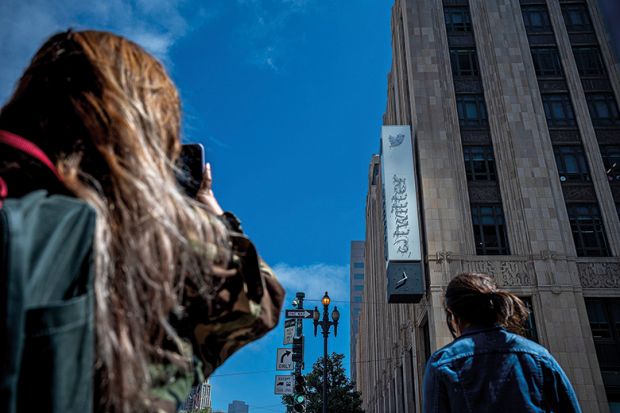The slow demise of Twitter has left a “void” that might harm academics’ ability to organise, call out bad practice and gain influence beyond their fields, experts have warned.
Although little comparative data exists for how academics’ use of Twitter – now called X – has declined, many say it is no longer fulfilling the functions it performed for the scholarly community for more than a decade.
Academics have objected to changes in the site’s algorithm that have seen their posts gain less traction, the rolling back of hate speech protections and the proliferation of junk posts and accounts since the takeover by Elon Musk in October 2022.
Kit Yates, a senior lecturer in mathematical sciences at the University of Bath, who gained a large following on Twitter for his work during the Covid pandemic, said the advantages of using it – reaching a large audience with control over the timeframe and voice – were being eroded.
He cited the promotion of tweets by those paying to use the site as a key factor that had made problems with trolling and misinformation more acute and said Mr Musk’s latest announcement – that he was going to remove the ability to block accounts – could be “the last straw for me”.
High-profile academics leaving the site were one sign of its declining influence in higher education, said Michelle Riedlinger, an expert in science communication at the Queensland University of Technology, “but there is also a sense that…others are just reducing the time they spend on Twitter/X and shopping around for other options while they wait to see what happens”.
This was leading to fragmentation because there was no consensus over what should replace Twitter, she added, and its former users were spread out across other social networks, messaging services, email lists and scholarly associations.
Mark Carrigan, a lecturer at the University of Manchester’s Institute for Education, said this might result in a “retrenchment into existing networks”, which would be most keenly felt by early career researchers. “Finding your research community is a crucial part of getting established in academia and [without Twitter] that is inherently a lot harder than it used to be and will become a lot harder still,” he said.
Twitter also arguably contributed to the internationalisation of higher education in recent years, Dr Carrigan added, and its decline might lead to boundaries becoming more pronounced again.
“Twitter, for all its many flaws, did serve basically positive purposes for the academy for quite some time and I can’t see how to recreate that,” he said.
Darren Linvill, a professor at the Clemson University Media Forensics Hub, said Twitter had always previously been the first place he saw colleagues’ new work, as well as being somewhere to find jobs and other opportunities, and “engage with fellow academics as real people and not just faceless citations”.
While this networking “void” might still be filled with other options, it was the loss of encountering ideas from other fields that would have the biggest impact on academic research, according to Professor Linvill. At its best, he said, Twitter “has always been good at giving you not only what you know you want to see but also what you didn’t know you wanted to see”.
For scholars isolated by geography or other factors such as caring responsibilities, Twitter helped them feel part of a community, but also gave them a voice to discuss the issues they had faced, according to Petra Boynton, a social psychologist and research consultant who has moved her own online presence to Meta’s Threads platform.
“The increased availability of social media has led to people feeling more able to talk openly about bullying or the more toxic aspects of academia that we have all long known about,” she said. “It was a space where we could talk about racism, ableism and homophobia in universities, and also produce evidence and mobilise around it. It transformed the landscape.
“I’m not pretending it has been perfect – there have been problems of bullying, abuse and inequalities that have played out across academic Twitter just as much as within academia itself. But there was something about it that allowed light to be shone on problematic practice.”
Twitter’s ability to help academics organise has perhaps most keenly been seen in disputes over working conditions and in the way it has been used to call out wrongdoing by senior leaders.
In the UK, Dr Carrigan said, its role in the current pay dispute might have worked against the University and College Union (UCU) because employers could see “in real time” divisions within the union playing out.
But during previous campaigns, such as the strike action that opposed cuts to pensions provided by the Universities Superannuation Scheme, Twitter had been an “extremely positive factor”, he said, and had helped academics focus on a common objective and coordinate with a sense of “we are doing this together”.
Register to continue
Why register?
- Registration is free and only takes a moment
- Once registered, you can read 3 articles a month
- Sign up for our newsletter
Subscribe
Or subscribe for unlimited access to:
- Unlimited access to news, views, insights & reviews
- Digital editions
- Digital access to THE’s university and college rankings analysis
Already registered or a current subscriber? Login







